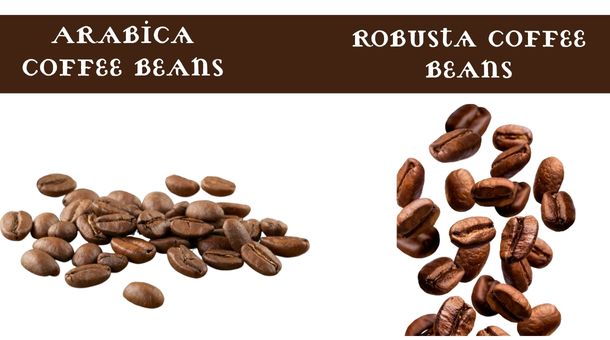Difference Between Arabica and Robusta Coffee Beans Difference Between Arabica and Robusta Coffee Beans Difference Between Arabica and Robusta Coffee Beans Difference Between Arabica and Robusta Coffee Beans Difference Between Arabica and Robusta Coffee Beans Difference Between Arabica and Robusta Coffee Beans Difference Between Arabica and Robusta Coffee Beans Difference Between Arabica and Robusta Coffee Beans Difference Between Arabica and Robusta Coffee Beans
Arabica and Robusta coffee beans are two distinct species of coffee that have notable differences in terms of taste, growing conditions, caffeine content, and more. Here’s a detailed comparison between Arabica and Robusta coffee beans:
| Arabica Coffee Beans | Robusta Coffee Beans | |
|---|---|---|
| Origin | Indigenous to the highlands of Ethiopia | Indigenous to sub-Saharan Africa |
| Growing Conditions | Grows at higher altitudes (600-2000 meters) | Grows at lower altitudes (200-800 meters) |
| Taste | Delicate and complex flavor profile with acidity and sweetness | Strong, bitter taste with less acidity and more body |
| Caffeine Content | Lower caffeine content (1.2% – 1.5%) | Higher caffeine content (2.2% – 2.7%) |
| Bean Appearance | Oval-shaped, with a curved crease on one side | Round-shaped, with a straight crease on one side |
| Cultivation | Requires precise conditions and care | More resistant to pests and diseases |
| Price | Generally more expensive | Generally more affordable |
| Market Share | Accounts for about 70% of global coffee production | Accounts for about 30% of global coffee production |
| Usage | Preferred for specialty and gourmet coffees | Commonly used in instant coffee and espresso blends |
What is the Difference Between Arabica and Robusta Coffee Beans?
Health Benefits of Arabica and Robusta Coffee Beans:
- Coffee’s Hidden Perks: Exploring the Health Benefits of Arabica and Robusta Beans”
- “The Healthy Buzz: How Arabica and Robusta Coffee Beans Can Boost Your Well-being”
- “Wake Up to Wellness: Unveiling the Health Benefits of Arabica and Robusta Coffee Beans”
- “From Energy Boost to Antioxidants: The Health Advantages of Arabica and Robusta Coffee Beans”
- “A Cup Full of Goodness: Understanding the Health Benefits of Arabica and Robusta Coffee Beans”
- “Sip Your Way to Health: Discovering the Nutritional Value of Arabica and Robusta Coffee Beans”
- “Coffee for a Healthier You: Exploring the Benefits of Arabica and Robusta Beans”
- “Beyond the Morning Jolt: Exploring the Lesser-Known Health Benefits of Arabica and Robusta Coffee Beans”
- “Caffeine and Beyond: The Surprising Health Advantages of Arabica and Robusta Coffee Beans”
- “More Than Just a Pick-Me-Up: The Medicinal Properties of Arabica and Robusta Coffee Beans”
Conclusion:
Arabica and Robusta coffee beans differ in several key aspects. Arabica, known for its delicate and nuanced flavors, originates from high-altitude regions and is often described as having a smoother, sweeter taste with pleasant acidity.
On the other hand, Robusta, grown at lower altitudes, offers a more robust and bitter flavor profile. It contains higher caffeine content and is commonly used in espresso blends for its strong and full-bodied characteristics.
While Arabica is favored for its quality and complex flavors, Robusta is valued for its affordability, caffeine kick, and ability to enhance crema in espresso. Understanding the differences between these two coffee bean types can help coffee enthusiasts choose the perfect brew to suit their taste preferences and brewing methods.
So whether you’re seeking a refined and nuanced cup or a bold and energetic pick-me-up, the choice between Arabica and Robusta lies in the distinct flavors and characteristics each bean brings to your coffee experience.

